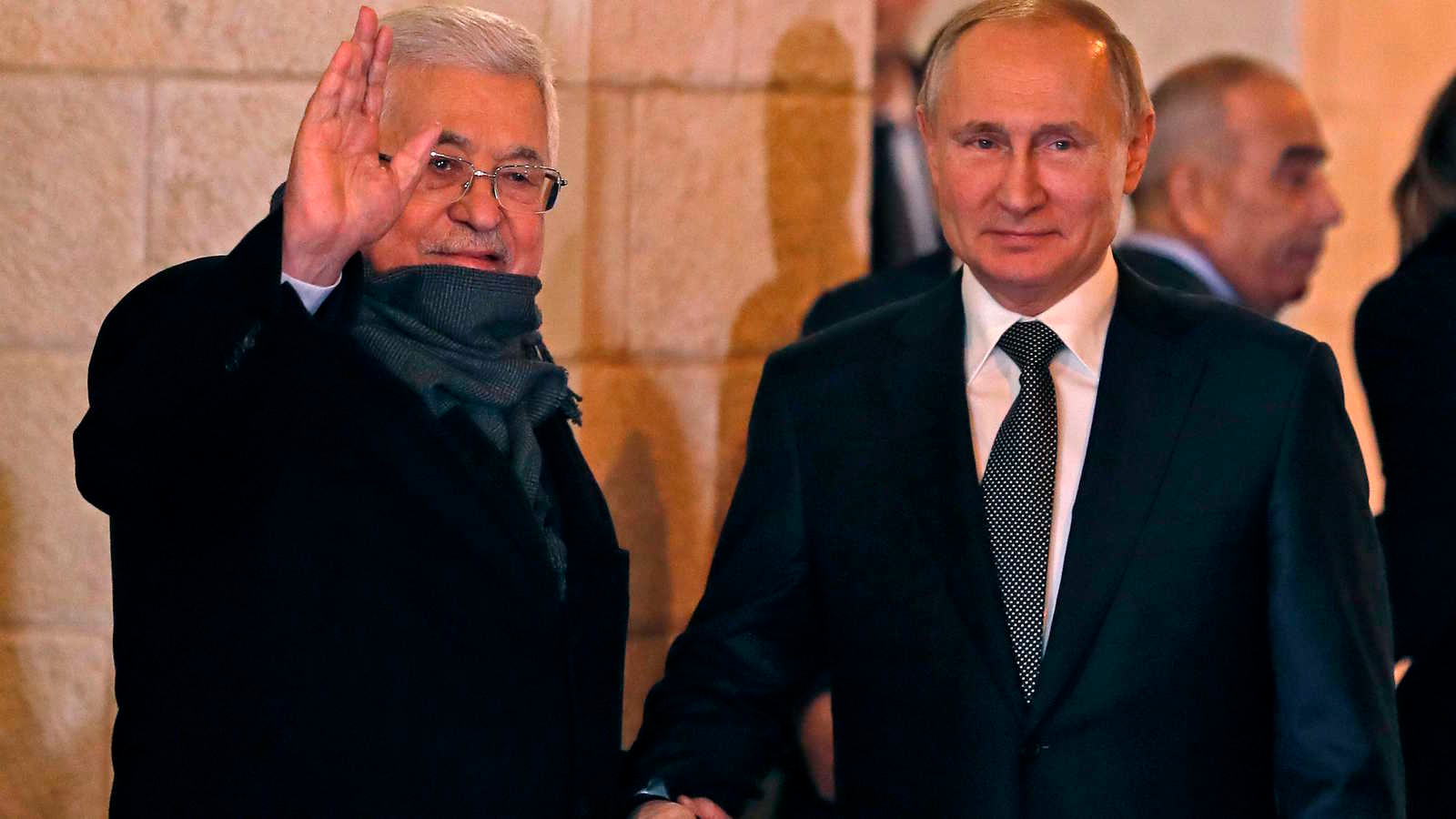
Russia has voiced willingness to mediate between Israel and Palestine in its capacity as a member of the Middle East Quartet.
Russian President Vladimir Putin and Palestinian Authority President Mahmoud Abbas spoke by phone Tuesday to discuss the Palestinian-Israeli conflict, the Kremlin said in a press release.
On the call, Putin told Abbas that Russia is willing to act as a mediator between Israel and the PA in its role as a member of the Middle East Quartet. The Quartet refers to the United States, Russia, the European Union and the United Nations. The group has acted as an intermediary on Israeli-Palestinian peace talks in the past.
Israel and the State of Palestine, as the PA is also known, have not held peace negotiations for several years. In October, the PA’s permanent observer to the United Nations, Riyad Mansour, told Al-Monitor that he was optimistic about a peace conference taking place in early 2021. Abbas proposed such a conference in September.
In December, the director general of Israel’s Foreign Ministry, Alon Ushpiz, said at an Al-Monitor event that Israel is ready for direct talks with the Palestinian Authority at any time without preconditions.
Russia has recently tried to revive the Quartet, which was more active in the past.
“We believe that the Quartet should act with more urgency,” Russian Foreign Minister Sergey Lavrov said at a UN summit in October. “It can and must play the role assigned to it in developing direct Palestinian-Israeli talks.”
The Palestinian Authority has focused its diplomacy on Russia, the EU and UN in 2020. This could be because the fourth state in the quartet, the United States, has been overwhelmingly supportive of Israel under US President Donald Trump.
Russia is in a unique position in the Middle East because it has cordial relations with both Israel and Palestine.
 Eurasia Press & News
Eurasia Press & News



